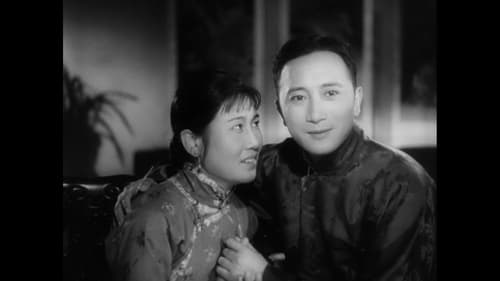
Editor
Chuk Tai-ming elopes to Hong Kong with Shum Tsui-hung in defiance of his father but soon succumbs to harsh conditions and ill health. Shum becomes a courtesan to fulfil Tai-ming's last wish of funding his younger brother Chi-ming's studies in Australia, while creating the false impression that she is a rich widow. Chi-ming returns in summer and a chance encounter in the nightclub evolves into a budding romance. Tormented by a love doomed from the start, Shum pretends to despise the poor suitor. The rejection is taken hard by Chi-ming, who snubs the woman in public. Shum plunges into despair, taking gravely ill. Her lawyer Lee Chung-ling finally breaks the silence, making Chi-ming attuned to the woman's unspoken suffering after she's been laid to rest.

Editor
A Chinese man, Yip Ching (Patrick Tse Yin) and a Malay girl Solina (Molly Wu Kar) are two young people very much in love. However, Yip Ching’s mother disapproves of this inter-racial relationship. When Yip Ching plans to visit his aunt and cousins in Hong Kong, Solina’s insecurity causes her to threaten him with a curse. Yip Ching proceeds with his trip to Hong Kong, but Solina’s curse appears to come true in a series of unfolding tragedies.

Editor
Chan Siu-hung is forced to become a prostitute, with the police following hot on her heels. Ching Chi-ko comes to her defence by claiming to be her husband. Chan is put up at Ching's roof hut named the 'Seventh Heaven' and the two gradually fall in love. Soon the war breaks out. Ching is drafted to do hard labour by the Japanese army. When the war is over, the crippled Ching returns and lies to Chan that he is already a married man, hoping to persvade Chan to marry someone else. Nonetheless, Chan's devotion overwhelms Ching.

Recording Supervision
"Family" (1953), which launched the Union Film legacy, "Spring" (1953) and "Autumn" (1954) are adaptations of Ba Jin's highly regarded novel "Torrent Trilogy". In "Family", director Ng Wui skilfully condenses the voluminous first part of the novel into an emotionally powerful and intellectually focused story of youngsters struggling to survive oppression and repression in a feudalistic family. This well-received film quickly established the company's reputation.



